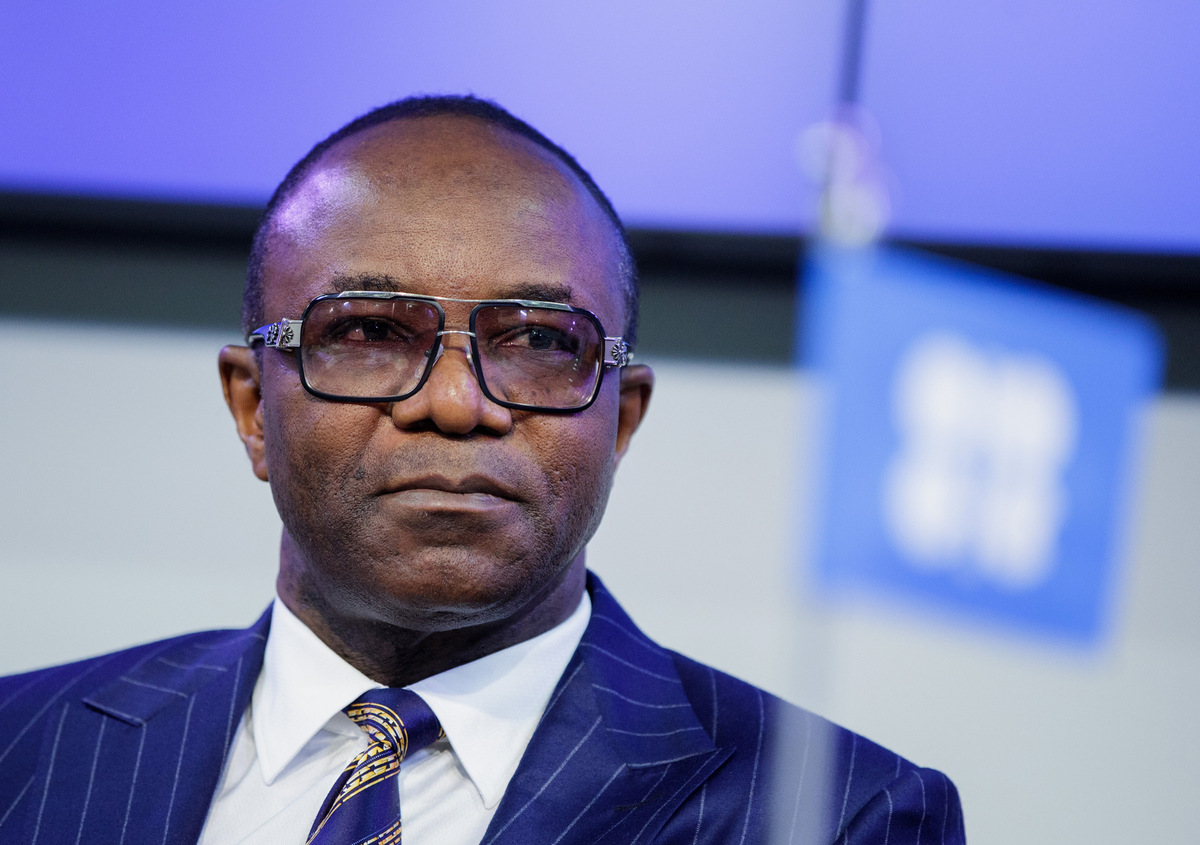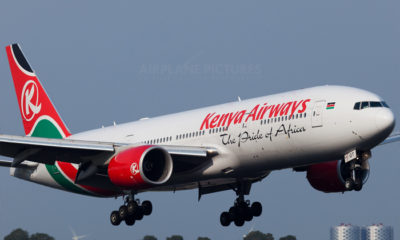Economy
FG Pays IOCs $400m as Part Settlement of Cash Call Debt
Published
8 years agoon

- FG Pays IOCs $400m as Part Settlement of Cash Call Debt
The federal government has begun redeeming its pledge to settle outstanding joint venture cash call debts it owes international oil companies (IOCs), with $400 million released to them last week, the Minister of State for Petroleum Resources, Dr. Ibe Kachikwu has disclosed.
Kachikwu told reporters on Tuesday on the sidelines of the 2017 Offshore Technology Conference (OTC) in Houston, Texas that the $400 million payment was part of the $1.2 billion cash call debt owed the IOCs in 2016.
This, he clarified, was different from the discounted $5.1 billion cash call arrears it negotiated in December 2016 with the IOCs.
Nigeria produces more than half of its oil under joint operating agreements (JOAs) with five IOCs comprising ExxonMobil, Shell, Nigeria Agip Oil Company (NAOC), Chevron and Total.
The minister also revealed that a monthly repayment plan of $70 million has also been worked out with the Central Bank of Nigeria (CBN) to offset the $1.2 billion debt in one year.
The negotiated $5.1 billion debt, he emphasised, would be repaid from incremental oil production by the IOCs.
The minister explained that on the basis of the payment, the IOCs were beginning to regain confidence in Nigeria’s oil industry, adding that the country’s oil production could increase by 700,000 barrels per day (bd) by 2018 from the development.
“At the time that we did the joint venture review that we came up with, we had two components to it. The first was the $6.8 billion of arrears covering about six years which were owed the oil companies.
“In our negotiations, we were able to trim that down to about $5.1 billion, so we knocked off $1.7 billion out of it and then spread the $5.1 billion over the next five years to be paid from incremental production, not from existing production.
“In other words, they will have to go find new oil and from that new oil, recover their money because we didn’t want to imperil the 2.2 million that everybody is already used to,” said Kachikwu.
He added: “The second tranche of the money which was not in the $6.8 billion or the $5.1 billion, depending on where you land, was a figure of about $1.2 billion which represented only 2016 arrears, and the oil companies insisted that it needed to be repaid completely because they couldn’t begin to add that to the $5.1 billion.
“We eventually agreed to pay in several tranches. $400 million out of that for the first tranche and then the remaining $700 million paid in monthly installments for a period of one year; that will roughly be about $60 or $70 million every month after the first $400 million.”
According to the minister, the payment of the first $400 million would jumpstart the whole process of crystallising the agreement that had been reached on JV funding and which was paid a couple of days ago.
“That was a major milestone and we have made provisions through the central bank for the payment of the balance on a monthly basis,” Kachikwu explained.
He said this would incentivise the IOCs to invest in existing and new projects in the country.
“But more important and significant even more than the payment of the outstanding debt, was the restructuring of the JV cash calls.
“Previously, what happened was that all income went back to the Federation Account and from then you budgeted and sent back to them some money.
“Invariably, even when there was a budget, we never met that, we ate both the cost and revenue.
“What this has done now is to skew that to the other direction such that from production after royalties, you take away the cost of production on a budgeted basis and then the balance goes back to the Federation Account. So, hopefully, going forward, we shouldn’t have that problem again.
“What we cannot cover in terms of the budget, the oil companies will go out to raise loans from third parties to enable them continue with their exploration and production programmes,” Kachkwu explained.
Listing some of the immediate impacts of the restructuring, he said: “What this would do will be that it addresses arrears, current cash call requirements and then investment funding requirements.
“That’s the beauty of what is happening and the net effect over the last two months is that we have seen the Zabazaba signing and Bonga coming back.
“We have today, cumulative number of projects that are coming back which should between now and next year, give us additional 700,000 barrels over and above the 2.2 million barrels per day.
“That is why I can say with confidence that we are in a position to move up to 3 million barrels per day very quickly.”
The Nigerian National Petroleum Corporation (NNPC) also announced on Tuesday that the first batch of the three new gas fired power plants it plans to build in Abuja, Kaduna and Kano with its joint venture partners would be completed by 2019 to boost power generation in the country.
The corporation also stated that within the same period, it would increase the crude oil production of its exploration and production (E&P) arm, the Nigerian Petroleum Development Company (NPDC) to 300,000 barrels per day (bpd), before moving it further to 700,000bpd.
NNPC’s Group Managing Director, Dr. Maikanti Baru, said this on Tuesday at the 2017 edition of the OTC in Houston.
Baru, who was represented by NNPC’s Chief Operating Officer (COO), Gas and Power, Saidu Mohammed, at the conference, added that the three plants combined will generate up to 3,000 megawatts (MW) of electricity.
According to him, NNPC currently has interest in two power plants in Okpai, Delta State and Afam, Rivers State, which were built under its joint venture (JV) partnership with NAOC and Shell, respectively. The two plants collectively generate up to 1,000MW.
Mohammed said the corporation would be providing up to 4,000MW of electricity to Nigeria’s grid when the three plants are completed.
“They will all come at different times but the first batch will come in 2019,” Mohammed said, before explaining that the plants would be built by Incorporated Joint Venture (IJV) companies involving the NNPC, international power firms and Nigerian investors, and taking the business format of the Nigerian Liquefied Natural Gas (NLNG).
Equally, the NNPC recently said it was already in the process of extending its gas pipelines to connect the cities that would host the power plants, starting from Ajaokuta to Abuja to Kaduna and then to Kano. The line is often referred to as the AKK gas pipeline.
“We are focusing on the transformation that is going on in the NNPC in terms of reforms,” the GMD said.
On NPDC, Baru added: “We are not doing it alone, that’s why we are coming here to showcase to those who have the capacity and competencies to come to Nigeria to invest and increase our reserves and also enhance the only E&P company that we have, NPDC.
“We have a target of raising the production of NPDC within the next two years. We are talking about nothing less than 200,000 to 300,000 barrels per day.
“Essentially we want to raise the entire NPDC production to about 700,000 with other partners, then increase Nigeria’s production to up to 3 million barrels per day.”
Is the CEO and Founder of Investors King Limited. He is a seasoned foreign exchange research analyst and a published author on Yahoo Finance, Business Insider, Nasdaq, Entrepreneur.com, Investorplace, and other prominent platforms. With over two decades of experience in global financial markets, Olukoya is well-recognized in the industry.

You may like
-
Nigeria Considers Creation of 31 New States Despite Economic Challenges
-
Visa Denial Sparks Airport Drama as Kenya Airways Defends Staff
-
Nigeria Seeks $15bn Investment to Revamp Power Sector, Offers Higher Tariffs
-
Nigeria’s Economy Shows Signs of Recovery with December PMI at 51.0
-
Nigeria Joins BRICS as Partner Country, Strengthening Global South Cooperation
-
70 Million Poorest of The Poor Nigerians To Get N75,000 From FG















